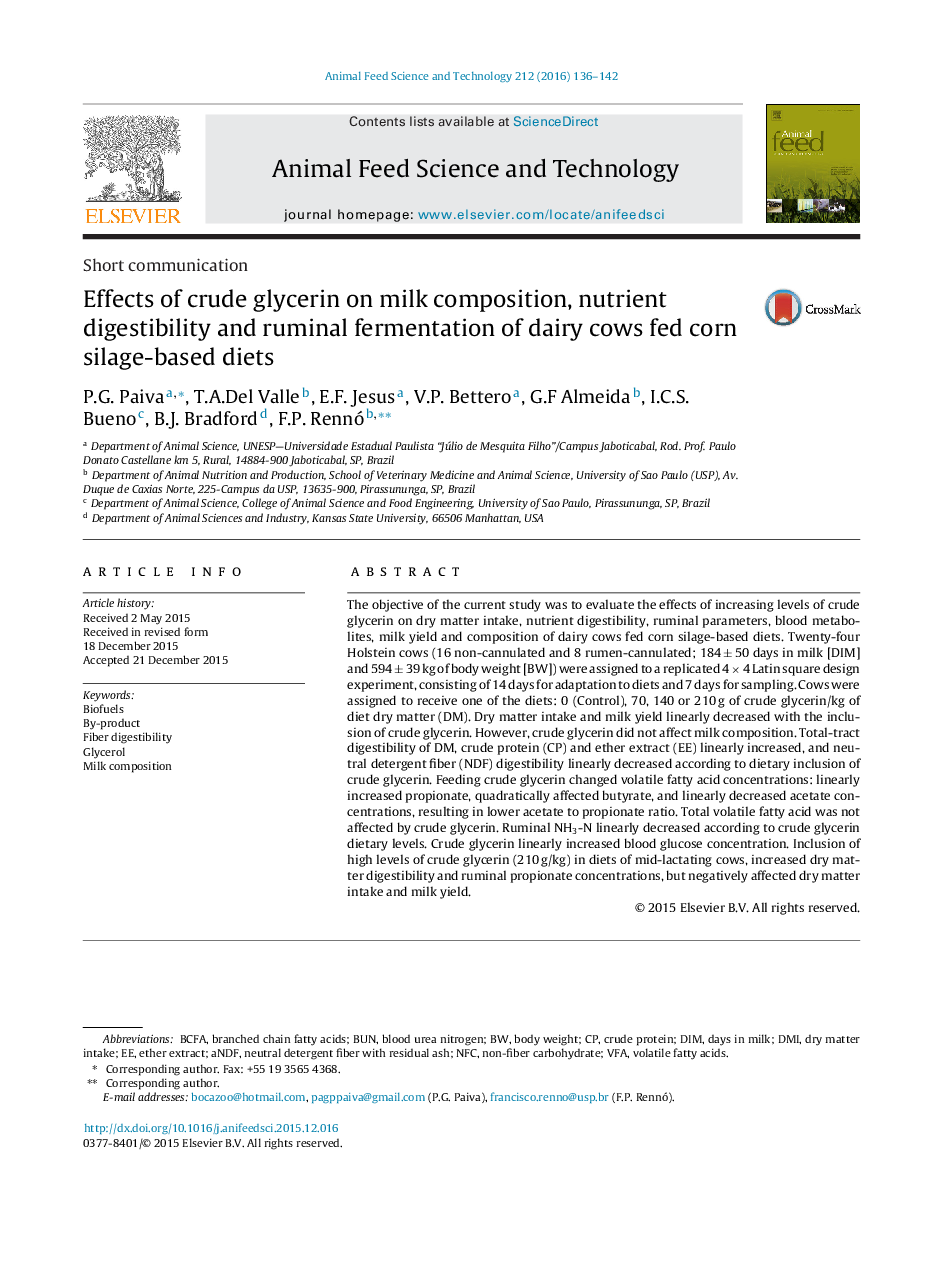| Article ID | Journal | Published Year | Pages | File Type |
|---|---|---|---|---|
| 8491287 | Animal Feed Science and Technology | 2016 | 7 Pages |
Abstract
The objective of the current study was to evaluate the effects of increasing levels of crude glycerin on dry matter intake, nutrient digestibility, ruminal parameters, blood metabolites, milk yield and composition of dairy cows fed corn silage-based diets. Twenty-four Holstein cows (16 non-cannulated and 8 rumen-cannulated; 184 ± 50 days in milk [DIM] and 594 ± 39 kg of body weight [BW]) were assigned to a replicated 4 Ã 4 Latin square design experiment, consisting of 14 days for adaptation to diets and 7 days for sampling. Cows were assigned to receive one of the diets: 0 (Control), 70, 140 or 210 g of crude glycerin/kg of diet dry matter (DM). Dry matter intake and milk yield linearly decreased with the inclusion of crude glycerin. However, crude glycerin did not affect milk composition. Total-tract digestibility of DM, crude protein (CP) and ether extract (EE) linearly increased, and neutral detergent fiber (NDF) digestibility linearly decreased according to dietary inclusion of crude glycerin. Feeding crude glycerin changed volatile fatty acid concentrations: linearly increased propionate, quadratically affected butyrate, and linearly decreased acetate concentrations, resulting in lower acetate to propionate ratio. Total volatile fatty acid was not affected by crude glycerin. Ruminal NH3-N linearly decreased according to crude glycerin dietary levels. Crude glycerin linearly increased blood glucose concentration. Inclusion of high levels of crude glycerin (210 g/kg) in diets of mid-lactating cows, increased dry matter digestibility and ruminal propionate concentrations, but negatively affected dry matter intake and milk yield.
Keywords
Related Topics
Life Sciences
Agricultural and Biological Sciences
Animal Science and Zoology
Authors
P.G. Paiva, T.A.Del Valle, E.F. Jesus, V.P. Bettero, G.F Almeida, I.C.S. Bueno, B.J. Bradford, F.P. Rennó,
